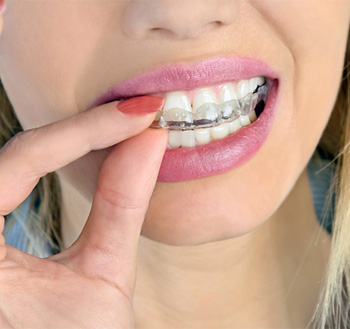Dental emergencies can and do happen--these incidents aren’t always avoidable and tend to cause much pain. But you can always quickly call us whenever you face one. Dr. Bianca Sanchez and our dental team will address the matter with emergency dentistry in San Antonio. Simply keep reading or book a same-day visit to get the immediate attention you deserve.
How We Treat Dental Emergencies
Like many, perhaps you’ve never needed urgent oral care before. There’s no need to panic; our dental team will walk you through the process. To that end, expect these four things from an emergency dental visit:
A Same-Day Visit – As soon as you call us, we’ll book you for the earliest possible visit. Our staff can then share some first-aid tips over the phone.
An Emergency Exam – Dr. Sanchez will conduct an emergency oral exam at the start of your visit. That way, she’ll learn the source and extent of your issue. (The exam also confirms how to relieve your pain.)
Findings Review – Once the exam is done, Dr. Sanchez will share her findings with you. She’ll then suggest suitable treatment options.
Needed Dental Care – By following your treatment plan, we’ll solve your oral issue. Whether you need a filling, crown, root canal therapy, or something else, we’ll be ready.
The Most Common Dental Emergencies
Some dental emergencies tend to be pretty common. You can trust us to handle typical (yet pressing) dental issues and should give our office a call if you face any of the following:
Toothaches
Is My Toothache a Dental Emergency? Although there are many potential causes for a toothache, no pain is considered ‘normal’. Your situation might require immediate attention if:
The pain is severe or doesn’t fade after 24 hours.
You have sharp tooth sensitivity that lasts more than 30 seconds.
There’s a sharp, unpleasant sensation when you bite down.
There’s a small bump on your gums near the affected tooth.
The aching tooth looks darker than surrounding teeth.
You have other symptoms of a serious infection like fever, swelling, or fatigue.
How You Should Handle a Toothache: Brush and floss gently to ensure a lodged object between your teeth isn’t causing your issue. Then, it’s usually safe to take over-the-counter medicines like Tylenol or ibuprofen to address soreness and inflammation. You can also try gently rinsing your mouth with salt water to disinfect bacteria and reduce discomfort.
How We Treat Toothaches: The treatment depends on the cause, so we’ll need to examine your mouth to identify the underlying issue. If it’s due to a cavity or gum disease, you may need a filling, root canal, or dental crown to address it. For those suffering from bruxism, or chronic teeth grinding, we can provide a nightguard to protect your teeth from the added pressure.
If your tooth is too decayed or injured to be effectively repaired, we might recommend an extraction and replacement.
Cracked Tooth
Is a Cracked Tooth a Dental Emergency? Cracks in your teeth need to be assessed sooner rather than later because Dr. Sanchez can help determine the extent of the damage. Even if it looks small on the surface, it might go deeper than you think. Any damage that compromises the structure of your tooth leaves you vulnerable to additional injury or potential infection.
How You Should Handle a Cracked Tooth: Rinse your mouth with warm salt water to keep unwanted germs at bay. If your tooth feels tender, you can also apply a cold compress or take over-the-counter meds to reduce any aches and inflammation. Avoid eating or chewing with that side of your mouth to prevent worsening discomfort.
How We Treat Cracked Teeth: For minor fractures that exist in the surface layer of enamel, we might be able to apply color-matched composite resin to fill it in and restore your tooth’s functionality. Otherwise, we can provide a customized dental crown that’s bonded over your injured tooth so that you can continue to use it normally.
Chipped Teeth
Is a Chipped Tooth a Dental Emergency? Depending on the severity of your condition, your chipped tooth can potentially wait a few days before being treated. However, if you wait too long, you run the risk of potential additional damage, injury, or infection.
How You Should Handle a Chipped Tooth: If large pieces have broken off, do your best to locate them and store them in a clean container to bring with you to our office. Then, rinse your mouth with water to gently clear away debris and bacteria. Try to avoid biting anything with your injured tooth, and cover jagged edges with dental wax or sugar-free gum if necessary.
How We Treat Chipped Teeth: Frequently, chipped teeth can be restored with custom-colored composite resin that matches the shade of your natural ones. If the damage is causing aesthetic concerns with your smile, you might want to consider a cosmetic enhancement like veneers.
Knocked-Out Tooth
Is My Knocked-Out Tooth a Dental Emergency? If you’ve sustained an injury or bit into something too hard and a tooth has been dislodged, you should contact us right away to schedule a same-day appointment. The earlier you reach us, the better the chances of saving your tooth.
How You Should Handle a Knocked-Out Tooth: Locate the tooth but remember to only handle it by the crown- the tooth shaped portion- and not the roots. This ensures that any viable cells remain intact so we might be able to place it back in its socket. Gently rinse it and place it in a small container with some milk or some of your saliva to keep it from drying out before you arrive.
How We Treat Knocked-Out Teeth: If the tooth is largely still in good condition, we might be able to place it back in its socket so it can reintegrate with your jaw. Otherwise, we will recommend an appropriate replacement based on your unique circumstances, like an implant, bridge, or dentures.
Very Sensitive Teeth
Are Very Sensitive Teeth a Dental Emergency? Overly sensitive teeth can occur for several reasons, and some are more urgent than others. For instance, it could be due to overly exposed roots from receding gums or weakening enamel. Mild cases may not require immediate attention but if your discomfort worsens or lasts multiple days, you may have a more serious underlying issue that needs to be addressed.
How You Should Handle Very Sensitive Teeth: First, contact our office so we can walk you through any special care tips over the phone and schedule your visit. Then, you can swish with lukewarm salt water to reduce aches and disinfect unwanted bacteria that might cause an infection. Avoid eating anything overly hot, cold, spicy, acidic, or sweet that could further trigger your tooth.
How We Treat Very Sensitive Teeth: The treatment will depend on what’s causing the problem. If your enamel is eroded, for example, we might recommend a topical fluoride treatment or desensitizing toothpaste. Otherwise, we’ll suggest the proper treatment for your issue, whether that means gum disease therapy, a root canal, or some other service.
Lost Filling or Crown
Is a Lost Filling or Crown a Dental Emergency? Although dental restorations are typically resilient and can last 10+ years, they can wear down and eventually require replacements. That means your lost restoration may not necessarily constitute an emergency. However, your once-treated tooth is vulnerable to additional injury, decay, or disease without protection so you should all us right away.
How You Should Handle a Lost Filling or Crown: If possible, locate the lost restoration so you can bring it to your appointment. Those with lost dental crowns might have some luck with temporarily placing it back over your tooth using a small amount of dental cement, orthodontic wax, or toothpaste.
How We Treat Lost Fillings or Crowns: For newer restorations that fell out, if it’s in good condition then our team might be able to recement it to your tooth. Otherwise, we’ll suggest replacing your dental crown or filling to safeguard your smile.
Broken Denture
Is a broken denture a dental emergency? Yes, a broken denture is considered a dental emergency, because without a properly working prosthetic, you cannot eat. Furthermore, wearing broken dentures can lead to injuries to the gums, soft tissues, jaws and even your remaining teeth. If you have damaged the base or the artificial teeth of your dentures, please call us right away for help.
How to handle a broken denture: If your denture breaks, it is important that you do not wear it. Doing so could scratch your mouth or even cause the damage to worsen. Remove it from your mouth and do not wear it again until Dr. Sanchez has seen you and instructs you that it is safe to continue. Never try to repair your dentures at home with superglue or any other household items, as these are not biocompatible and could make you sick.
How we treat broken dentures: How Dr. Sanchez treats your dentures will depend on the severity of the damage. Sometimes it is possible to use composite resin to repair small chips or cracks, but in other cases the denture may need to be relined. If these solutions do not work, you will need to be fitted for a new denture. Dr. Sanchez will be happy to discuss your options for dental implants or implant dentures at this time if you’re interested.
Loose Tooth
Is a loose tooth a dental emergency? Yes. Whether your tooth has become loose gradually over time or as the result of an injury, even if it doesn’t hurt it is in danger of falling out.
How you should handle a loose permanent tooth: First, call Dr. Sanchez immediately to schedule an urgent appointment. Then, rinse your mouth with clean, room temperature water. Until you are seen, do not touch your tooth with your finger or tongue, do not eat any crunchy foods, and avoid brushing or moving it.
How we treat loose permanent teeth: If your tooth can be salvaged, Dr. Sanchez will most likely bind it with a dental splint. Unfortunately, however, this may not be possible depending on the severity of the damage. In that case, Dr. Sanchez will remove the tooth and can discuss replacement options with a dental implant.
Injury to the Gums, Lips, or Tongue
Is an injury to the gums, lips, or tongue a dental emergency? If you have a cut in your mouth, it can bleed a considerable amount, but Dr. Sanchez may be able to assist you with this type of dental emergency. This type of injury is very common in sports.
How you should handle an injury to the gums, lips, or tongue: Should you suffer from an injury of this type, clean the area gently with water to clear away any debris or bacteria, and then apply pressure to the wound with a clean washcloth or gauze until the bleeding stops. You can then apply an ice pack or cold compress to reduce swelling and numb the pain.
How we treat injuries to the gums, lips, or tongue: If necessary, Dr. Sanchez can stitch your wound closed to help keep the area clean. However, if your bleeding has not stopped within ten minutes, please head to your local emergency room as soon as possible.
Jaw Pain
Is jaw pain a dental emergency? Jaw pain may not seem like an emergency, but this type of discomfort can easily interfere with your daily life and if left untreated can lead to a variety of serious oral health problems.
How you should handle jaw pain: If you are experiencing jaw pain, please call Dr. Sanchez at once and we can give you specific guidance over the phone. Typically, you can take OTC pain relievers and apply a cold compress or ice pack to ease any swelling and pain. However, if your jaw is broken or has become dislocated, go straight to the emergency room first. We can help you repair any damage to your smile afterwards.
How we treat jaw pain: If your jaw pain is caused by teeth grinding (bruxism) treatment with a custom mouthguard can help correct the issue and prevent further pain. If it is due to impacted wisdom teeth, Dr. Sanchez can work with you to get them extracted. If you require a trip to the emergency room first, please let us help you fix your damaged or lost teeth once you’ve been discharged.
Something Stuck Between the Teeth
If you have something stuck between your teeth, never try to dislodge it using tweezers, toothpicks, or anything else sharp. This could cause injury to your soft tissues. Instead, try using dental floss and rinsing well to free it. If you still cannot work it loose, contact Dr. Sanchez and we’ll be happy to assist you in clearing it away.
Keys to Preventing Dental Emergencies
While we are always happy to help assist you in a dental emergency, it is always a better idea to prevent an
emergency from happening than having to deal with one when it unexpectedly occurs. Investing your time and money on
regular, biannual cleanings and exams as well as practicing excellent oral hygiene can save you both time and money
later on and reduce your risk of this type of emergency from occurring.
Read More
Visit Your Dentist Regularly
Visiting Dr. Sanchez twice a year for your regular, biannual exam and cleaning can help stop looming oral health
problems as early as possible, or better yet, keep them from occurring in the first place!
Maintain Good Oral Hygiene Habits at Home
Brushing your teeth twice each day and flossing them at least once a day is an essential step in removing harmful
particles and dangerous bacteria that could cause cavities, decay, and infection.
Be Careful with Your Diet
Acidic drinks like soda and sports drinks can lead to enamel erosion that can weaken your teeth and cause them to
become sensitive. Furthermore, diets high in sugar and carbohydrates can provide a veritable feast for oral
bacteria, which can in turn cause an increase in cavities and gum inflammation. Thus, it is important to
maintain a diet high in healthy foods like fruits, vegetables, and lean proteins.
Wear a Mouthguard
There are two types of mouthguards: sports mouthguards and bruxism (teeth grinding) mouthguards. Both orthotics
can help protect your teeth and prevent accidental damage and breakage.
Use Tools, Not Teeth to Open Packaging
When opening packaging, containers, bags, or bottles, be sure to use the appropriate tools, not your teeth, as this can wear down your enamel and cause chips and cracks. The time it takes to locate a box cutter, knife, or other tool is well worth the protection it provides to your oral health.








